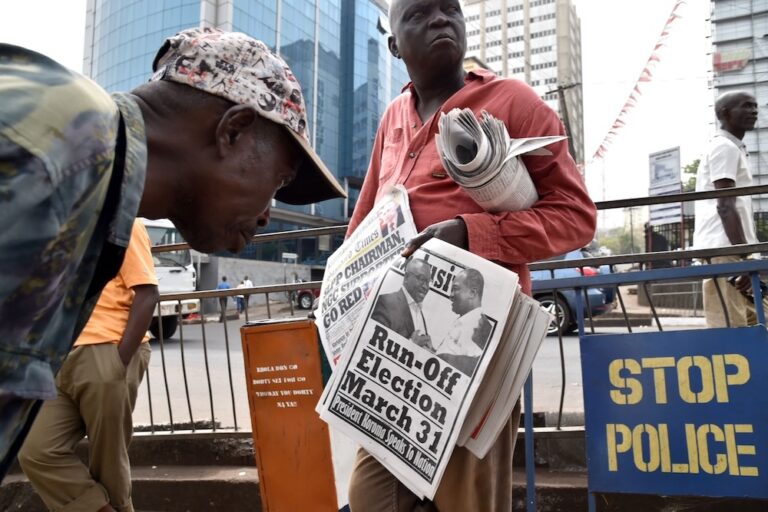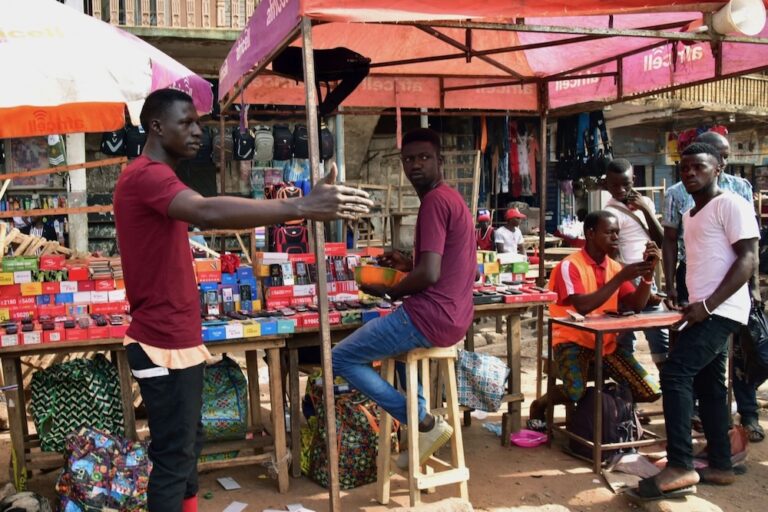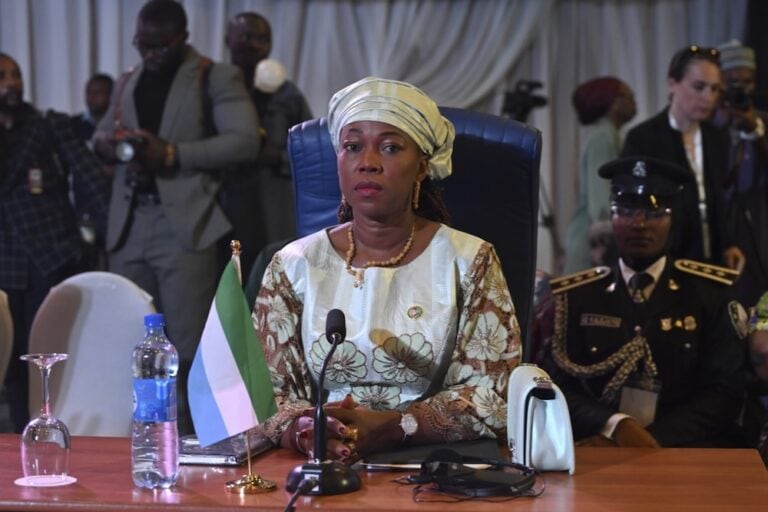(CPJ/IFEX) – On 31 December 1998, Col. Sam Bockrie of the Revolutionary United Front (RUF) rebel forces said, during an interview with the British Broadcasting Corporation (BBC), that BBC Makeni stringer Sylvester Rogers was biased against the rebels in his reporting, and that such people would be dealt with if the rebels take Makeni. Rogers […]
(CPJ/IFEX) – On 31 December 1998, Col. Sam Bockrie of the Revolutionary
United Front (RUF) rebel forces said, during an interview with the British
Broadcasting Corporation (BBC), that BBC Makeni stringer Sylvester Rogers
was biased against the rebels in his reporting, and that such people would
be dealt with if the rebels take Makeni. Rogers now faces possible
execution by the rebels and imprisonment by the government. His whereabouts
remain unknown.
**Updates IFEX alerts of 10 December and 9 December 1998**
There are conflicting reports as to who is currently in control of Makeni.
Rebel forces reportedly took control of the town on 28 December. However,
the West African Peacekeeping Forces (ECOMOG), which withdrew from Makeni
on that date, maintained that the town had not fallen, that it was a
“no-man’s land.”
On 8 December, Rogers was arrested by police after reporting that a soldier
of the West African Peacekeeping Forces (ECOMOG) had been killed by rebels.
On the same day, BBC correspondents Winston Ojukutu-Macaulay and Sulaiman
Momodu, who is also a reporter with the independent “Concord Times”, were
arrested in Freetown by officers of the Criminal Investigations Department
(CID). All three journalists were charged with “false reporting” and
“reporting news on the war without clearing their stories in advance with
the West African Peacekeeping Force (ECOMOG).”
Rogers was to be transported to Freetown but was held in Makeni because
fighting between ECOMOG and rebel forces had reportedly cut off roads to the
capital. Rogers was later released by police and admitted to the government
hospital in Makeni for treatment for malaria.
In a 9 December letter to President Kabbah protesting the arrests of Rogers,
Ojukutu-Macaulay, and Momodu, CPJ wrote “CPJ believes these arrests are
aimed at controlling news coverage of the on-going conflict in the country.
Furthermore, CPJ is strongly protesting the official statement broadcast on
5 January on state radio which described the journalists’ actions as
“unpatriotic behavior and a criminal act which is tantamount to acting as a
propagandist for the rebels.”
In a written reply to CPJ dated 20 December, John E. Leigh, Sierra Leone’s
Ambassador to the United States, said:
“Please be advised that the three journalists concerned…were not detained
for the reasons set forth in your letter; i.e. for correctly reporting
unpalable news. Rather, the three journalists were apprehended for
investigation for sedition or for possibly being in the pay of the AFRC/RUF
junta remnat as terrorist propaganda agents masquerading as legitimate
reporters in a free society.”
“These reporters are known to have frequently failed to meet professional
standards of objectivity in their reporting of our on-going civil strife,
despite numerous reminders that they must so conform by officials of the
elected Administration of President Tejan Kabbah.”
“As far as Roger’s report that an ECOMOG soldier was killed in Makeni, the
said report would never pass the scrutiny of even sub-standard fact-checkers
employed by a marginal newspaper. For your information, the reported dead
soldier was, in fact, an NPLF Liberian soldier dressed in a counterfeit
ECOMOG uniform.”


